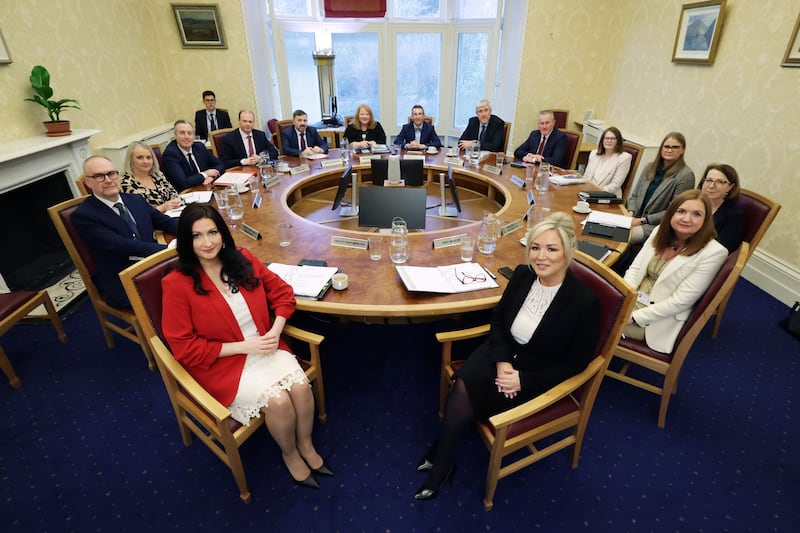Irish gross domestic product (GDP) is forecast to contract for the first time in 10 years as multinational activity slows, a think tank has warned.
The Economic and Social Research Institute (ESRI) said it expects Ireland’s GDP to contract this year by 1.6%, but the domestic economy will continue to grow this year and into next year.
The ESRI said this is the first time there has been negative GDP growth since 2012 and comes after Ireland experienced two quarters in a row with falling GDP – the technical definition of a recession.
It comes amid concerns expressed at the volatility of corporate tax revenues in Ireland, mostly collected from large foreign-owned multinationals.
Ireland’s budgetary watchdog has warned that just three corporate groups account for around a third of all corporation tax receipts in the country.
The three groups paid 5.2 billion euro in corporation tax in 2021, or 8% of the total tax revenues that year.
This is up from 5% in 2017, and up from 4% of total tax revenues in 1984.
The ESRI said on Wednesday that it expects modified domestic demand (MDD) – which captures consumption and investment in an attempt to measure the domestic economy – to increase by 1.8% in the present year.
The ESRI added that while in the past, GDP has tended to overstate the degree of growth in the domestic economy, in the present case it actually understates the degree of activity in the domestic economy.
It also concluded that while the pace of price increases has been declining steadily, it expects the Consumer Price Index (CPI) to increase by 6% this year and by 3.2% in 2024.
This is an increase on its previous forecast, as inflation has not declined as quickly as had been forecast earlier this year.
Ahead of the Budget next week, the ESRI warned against “domestic pressures” which could add to high prices, and instead suggested investing in infrastructure.
“Notwithstanding, the moderation in activity domestically and the slowdown in international trade, the domestic Irish economy is presently operating at capacity, in particular in relation to employment intensive sectors like construction,” it said.
“In this environment, additional domestic pressures are likely to feed through to prices in the short term.
“However, targeting expenditure towards addressing infrastructure bottlenecks and improving the productive capacity of the economy can alleviate capacity constraints in the medium term.”
Author of the report, Professor Kieran McQuinn of the ESRI, said: “The Irish economy, while operating near enough to full capacity, does look set to experience more moderate rates of growth over the short to medium-term.”
Another of the report’s authors, Dr Conor O’Toole, said: “As energy prices have eased, inflation has dropped relative to last year.
“However, these declines have stalled in recent months as the domestic economy continues to grow. This is going to present challenges to policymakers attempting to contain cost of living pressures.”








